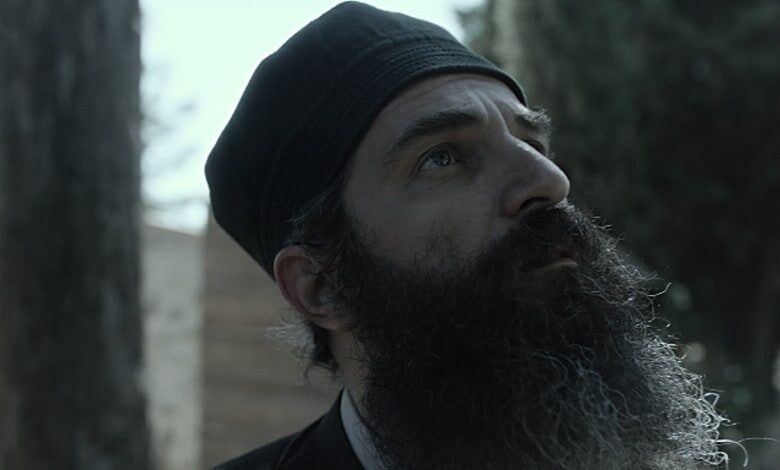
My Anglican priest recently recalled a trip to a monastery where a monk confided in him that he “didn’t like people very much.” My priest joked that he was in the right place.
The most bitter rivalries are often among those who dedicate their lives to public service, kindness, and faith. Religious institutions are among the worst afflicted, with one unnamed Benedictine monk joking that if “you want to see real sin, go to a monastery. There you’ll find backbiting and pride.”
“Man of God” is an English-language Greek film that explores this sad state of these institutional affairs.
It recalls the life of Saint Nektarios of Aegina, an early 20th century Eastern Orthodox Bishop who was falsely slandered multiple times by his own church and forced to serve the final 30 years of his life in poverty and shame.
The film stands quite confidently for itself in spite of its seemingly low budget, digging into the nature of Christian piety in a surprisingly effective way.
The film begins in 1890. Anastasios Kephalas, later known as Nektarios (Aris Servetalis), is introduced as the kindly and beloved Bishop of Alexandria. He is well regarded by the public and his reputation leaves the jealous hierarchs above him worried that he is seeking advancement.
Nektarios is wrongly discredited as an immoral man, not given a chance to defend himself, and exiled from the church of Alexandria. The Bishops even continued to harass him well after he moved to Athens, mailing negative letters to his employers, while he struggled finding work as a preacher, a teacher, and later a janitor.
The remainder of his life, until his death in 1920, is beset with further cruelty and slander. He would become famous among the general religious public for his writings, but was unable to rise politically within his church due to the bitterness of the men he served.
RELATED: Renaissance Woman Rocks Faith-Based Film World
He would eventually retire from his job at the school to help personally rebuild Holy Trinity Monastery on the island of Aegina, only to be accused of brainwashing and impregnating his nuns by a disgruntled mother. The church refused to officially recognize his monastery until four years after his death from prostate cancer.
His treatment by the church was bad enough that the Patriarch of Alexandria formally apologized to Nektarios in 1998.
“We beseech Saint Nektarios to forgive both us, unworthy as we are, and our predecessors, our brothers of the Throne of Alexandria, for opposition to the Saint and for all which, due to human weakness or error, our Holy Father, Bishop of Pentapolis, Saint Nektarios, suffered.”
Throughout the film, he’s beaten by police officers, betrayed by the church, screamed at by his secular schoolmaster for his backwards ascetic lifestyle and even criticized by his friends for not fighting back and attempting to profit off of his fame.
The best strength of “Man of God” and its storytelling comes from Nektarios’ piety. It is what holds the film together and what gives it such a rich and emotional depiction of the Christian life.
Nektarios starts the film as someone who has already found peace within his religion, and that doesn’t change. The crushing weight of poverty, slander, and hatred never break him. He embraces suffering at every turn, rejecting bitterness and embracing the people that hate him with love.
He could have lashed out, fallen into despair, or hated his enemies, but he chose not to.
Like most Christian films, “Man of God” is preachy, overly-reliant on exposition and clearly struggling to overcome its limited budget. Nektorios is the most defined character while most of his opponents are one-dimensional and uncomplicated facades that merely oppose him.
The strength of that central performance, though, makes it work.
The modern world similarly struggles with pride, jealousy, and slander. The lives of the saints, like that of Nectario, remind us to live life with a zeal for forgiveness and thought for others. The willingness of good men to be crushed for our iniquities is inspiring, heartbreaking, and reminds us of what it is supposed to look like to live out the Christian life.
“Man of God” is distributed by Fathom Events and will run theaters for one more screening March 28.
